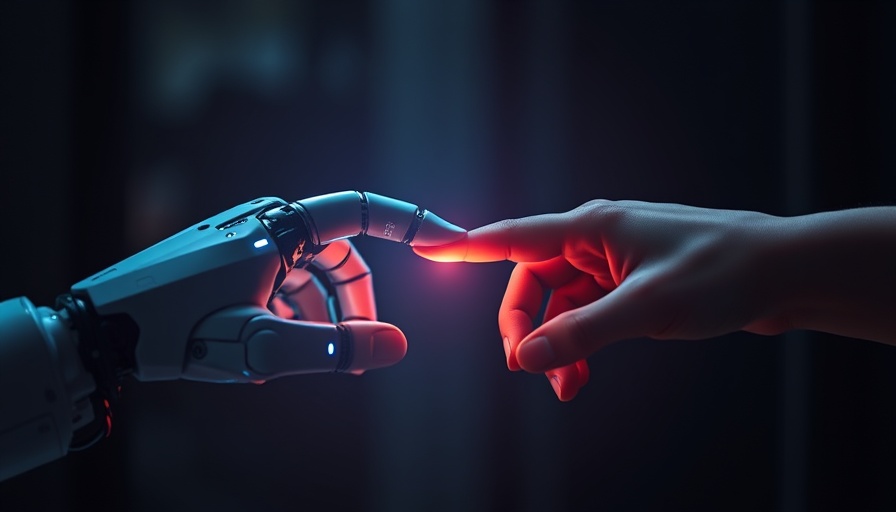
Unveiling the Rise of AI in Healthcare
The integration of artificial intelligence (AI) into healthcare marks a transformative era where technology meets medicine. As we step into this new age, AI tools are becoming increasingly adept at analyzing scans, such as CAT and MRI results, promising faster and potentially more accurate diagnoses. The recent paper from the medical journal *Nature* highlights that generative AI could one day equate the performance of human radiologists, dermatologists, and pathologists, creating anticipation and caution regarding this revolutionary shift.
The Promise of AI in Medical Imaging
Imagine a future where an AI-powered radiologist can not only interpret complex medical images but also consider a patient's historical medical background and symptoms. This vision posits that AI could recommend personalized treatment options based on comprehensive data analysis. Such advancements not only hold potential for improving patient outcomes but also address the long-standing issue of human error and reporting delays that currently plague the medical imaging process.
Challenges Ahead: Merging AI with Clinical Expertise
Despite the promising prospects, the path to widespread implementation of AI in healthcare is fraught with challenges. One of the primary concerns is ensuring that AI systems can be trusted to provide reliable interpretations. Human clinicians remain vital in corroborating AI analyses, making it essential for the clinical and technological domains to work collaboratively. The interplay of AI recommendations with a clinician's judgment will be crucial for safe and effective patient care, highlighting the need for ongoing training and adaptation of healthcare professionals in utilizing these technologies.
Investment Surge and the Marketplace Landscape
The financial implications of AI integration into healthcare are substantial. Tech giants like Microsoft and Google are already participating in this burgeoning market, with companies like Harrison.ai raising significant capital to expedite diagnostic processes. The healthcare sector allocates billions annually for imaging services, creating a lucrative space for innovations tailored to enhance diagnostic accuracy and efficiency. As healthcare systems look to streamline costs, adopting AI tools presents not only an operational advantage but also a potential for substantial financial savings.
The Future: Transformative Innovations on the Horizon
As AI technologies continue to evolve, the healthcare landscape will see profound changes in the approach to diagnosis and treatment. For instance, AI's ability to analyze vast datasets quickly may uncover trends and correlations that are not visible to human eyes. This data-driven approach can usher in new treatment paradigms and preventive measures. However, understanding the limitations of AI remains critical; while AI can assist, it should not replace human intuition and empathy, core components of medical practice.
Conclusion: The Balance of Technology and Humanity
For patients and healthcare providers alike, the advent of AI in medicine offers a double-edged sword. While it promises remarkable advancements and optimization of healthcare delivery, it also raises questions about trust, ethics, and the essential human element in patient care. As we stand at the precipice of this technological revolution, it is imperative to foster conversations around best practices, ethical considerations, and the role of human oversight in this new digital frontier.
To stay informed about the latest developments in AI technology and its implications for your health and the broader healthcare system, it’s crucial to engage actively with trusted sources and ongoing discourse in this field.
 Add Row
Add Row  Add
Add 




 Add Row
Add Row  Add
Add 








Write A Comment